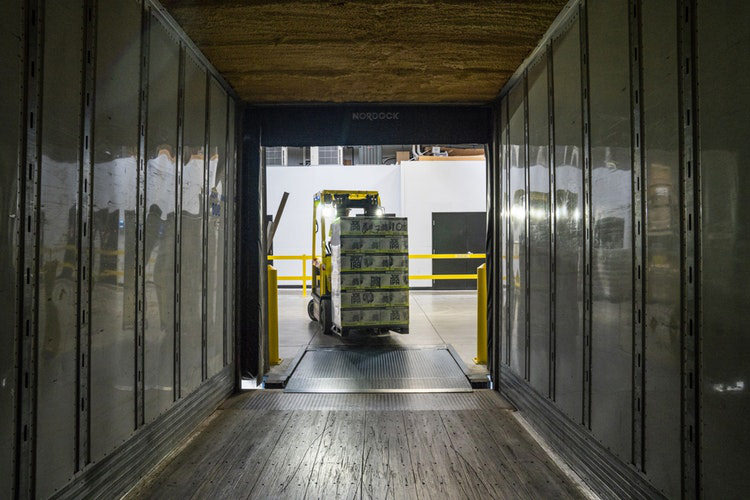What is Logistics 4.0?

Inevitable technological change has drifted the way industries function. Each and every segment of market functioning has been hit by digitization. Industries have already started to add modernized factories, smart technologies to create collaborated, operational workflows.
There has been a shift from the traditional approach to digital supply chain making it smarter, widely networked, and technologically advanced. Logistics has been hit by disruption after the introduction of the fourth industrial revolution. This has eventually evolved the complex world of logistics. It has automatically transformed the way products make their way from production to end-user – customers.
“In a wide way, Logistics 4.0 makes use of smart technology derived containers, vehicles, pallets, and transport systems. This ensures in creating a fully networked supply stream chain that offers supply chain managers, shippers, freight forwarders, and others the necessary transparency and visibility to route transport and performs other logistics tasks in an optimal way.”
For instance, in an IoT enabled warehouse, a supply chain manager who has access to the product would easily detect damaged product or group of products on the basis of heat and light conditions. Even if the realization of damaged products is too late, just by knowing the issue would enable the supply chain manager of the warehouse to restock the damaged products so that there is no hamper in providing customers in what they need at any time.
In a technologically advanced warehouse aligned with high-end technologies, the sensors alone could intimate an alert to the supplier illuminating that a restock order was necessary without requiring any human intervention at all.
It is Logistics 4.0 that has made integration and coordination possible across corporate boundaries. With technology involvement, the logistical issues related to both inbound and outbound material flows are easily and instantly streamlined in a significant manner. Companies are favoring Logistics 4.0 to network all warehouses with product lines and processes.
The technology drive of Logistics 4.0 enables companies to work more effectively than ever before with customers and partners, e.g. suppliers, manufacturers, wholesalers, retailers and logistics providers.
Technologies behind Logistics 4.0
Logistics 4.0 comprises of a mix of technologies for smooth functioning. Some include GPS, barcodes, Data Matrix codes, radio frequency identification (RFID) and sensors, electronic data interchange (EDI), the Internet and telematics, as well as on-site and cloud architecture and software.
Five Elements of Logistics 4.0
1. Visibility
One of the most important elements of technology-driven logistics is the increase in transparency and visibility from digitization across the complete supply chain system. Visibility has encouraged to build a smarter value stream system; also, it has proved to be a necessary prerequisite that has made logistics transparent and intra-operational much more efficient and comprehensive than its earlier manifestations.
For instance: Smart ports like Abu Dhabi’s are already implementing solutions that make possible not just real-time tracking, but real-time viewing of documents and other mission-critical information for freight forwarders and their customers.
2. Smart Utilities
There has been the introduction of various “smart” versions of traditional logistics components. This has already transformed the way shipments circulate from suppliers to end users. Involvement of technology in logistics utilities like smart containers and smart pallets are transforming traditional shipping workflows already and incorporating fresh prospects that collect data and perform judgements based on the crucial information.
3. IoT Adoption
With the introduction of Industry 4.0 in the market, many IoT development companies have come up with digital devices that can be deployed and embedded on factory floors of warehouses. Such enhancements of IoT inclusion are all technical and very critical. However, the end result of deployment enhances technology like smart containers and utilities by connecting them to the cloud. This not only evolves the entire supply chain management but also increases profits in gaining granular insights.
4. Industry 4.0 Integration
The modern technology-driven logistics paradigm is closely related to Industry 4.0. The most important factor of Logistics 4.0 is its power to collaborate integration with Industry 4.0 systems and procedures. This usually creates an environment that builds a synergy and communal relationship between manufacturers, shippers and end users. There is a constant security of safety from external threats, storage of important and crucial data and meeting the needs of end users. The transparency is clear than that of traditional approach ever followed.
Finoit Technologies is a renowned mobile app development company providing custom software development services and IOT application development services. We have developed over 450 mobile apps, and have assisted many solopreneurs in their journey of startups by functioning as a tech partner and rolling out their product ideas. For questions/queries, you may write to us at info@finoit.com

